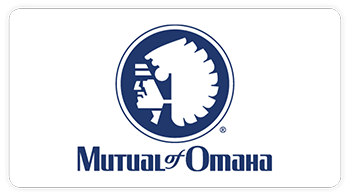 What skill set stands out when you think of successful insurance agents? Are they good at sales? Do they have a strong work ethic? Do they study the market and keep up with the times? Are they competitive?
What skill set stands out when you think of successful insurance agents? Are they good at sales? Do they have a strong work ethic? Do they study the market and keep up with the times? Are they competitive?
Those are all valuable traits for success in the insurance industry, but one skill that is more important than any others you can name. That skill is COMMUNICATION. Communication is more than having a conversation with a client. It’s the blending of five communication subskills that create a positive sales experience for agents and their clients.
- Verbal Skills
- Nonverbal Skills
- Written Skills
- Listening Skills
- Relationship-Building Skills
Below are some details about these subskills and examples of ways agents can work to improve themselves. Agents will find that when they authentically incorporate them into their interactions with clients, these sub skills can be the solid foundation for ongoing success.
Verbal Skills
As an agent, you know insurance. Your job is to find the best plans for clients and convey that information to them clearly and concisely. Avoid jargon and acronyms so clients can easily understand your message.
TIP FOR IMPROVEMENT: Test your message with friends and family members who aren’t in the insurance business. Do they understand your message? If not, rework your presentations with language and terms that are easier to understand.
Nonverbal Skills
Nonverbal skills are the facial expressions, tone of voice, body language and posture that we all display when we communicate. We can be unaware that we display these gestures, which can send a negative message to your clients that you are untrustworthy or insincere. Avoid slumping, a weak handshake, indirect eye contact and sitting with your arms folded.
TIP FOR IMPROVEMENT: Ask your branch manager or a trusted senior agent to accompany you on various sales calls for honest feedback on your nonverbal skills. Once you are aware of any negative, nonverbal behaviors, you can work to correct or eliminate them.
Written Skills
You can’t get around it: good writing skills are a must for successful agents. You send emails and texts to clients, colleagues, community contacts and vendors. Make them count! Similar to verbal skills, agents need to avoid jargon and acronyms when writing. Read emails, texts, and mailers BEFORE sending to find any typos or grammatical errors that could reflect badly on you as an agent.
TIPS FOR IMPROVEMENT: Always run a spelling and grammar check on any copy. Share samples of your written communications with a friend or family member, asking them to review your copy for conciseness and clarity.
Listening Skills
Listening can be hard. It’s human nature to hear someone start to explain a problem or issue, then you immediately jump in with a solution before the person completes his or her side of the conversation. When working with clients, it’s much better to hold back and let them tell their stories before interjecting. Waiting allows you to get a full picture of your client’s situation, which allows you to offer a plan that best suits a person’s needs.
TIP FOR IMPROVEMENT: When you have your branch manager or trusted senior agent accompany you on a sales call to observe your nonverbal skills, also ask him or her to evaluate how well you listen.
Relationship-Building Skills
It doesn’t take long to learn that relationships drive the insurance industry. Clients are more than willing to recommend agents who deliver exceptional products AND exceptional customer service. Hone your verbal, nonverbal, written and listening skills to create a client-focused experience that makes you a trusted resource for clients. You will find that clients are happy to refer you to their family and friends, which grows your client base and grows your business.
TIP FOR IMPROVEMENT: No matter the outcome, follow up each sales call with a thank you email or note to the client.




